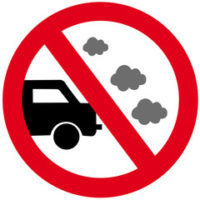New York Appellate Division Cites Mobil Oil Standard in Toxic Exposure Case

New York courts are continuing to grapple with the standards they will use when considering the credibility and weight to be afforded to expert witness reports and testimony in toxic exposure cases they consider. A recent opinion issued by the First Department of the New York Appellate Division has cited the landmark case on exposure and causation, Parker v. Mobil Oil, as a standard for considering an alleged victim’s evidence that their injury was caused by toxic exposure. Learn more about the case below, and contact a seasoned New York toxic exposure defense attorney with any additional questions you may have.
Background on Reeps v. BMW of North America, LLC
The case titled Reeps v. BMW of North America, LLC. has been working its way through New York courts for many years, having first been filed in 2008 (and having been the subject of a previous post on this blog). Guy and Debra Reeps owned a 1989 BMW 525i sedan, which Debra used as her primary vehicle. Debra Reeps first detected an odor of exhaust inside her vehicle in March of 1991 and took it to the local BMW dealer for repairs, but the dealer repairpersons could not reproduce an exhaust odor at that time. Debra Reeps became pregnant with the couple’s son, Sean, in August of 1991, and during her pregnancy, she continued to drive the BMW. The Reeps took the car back to the dealer in November 1991 when the exhaust odor persisted and, at that time, the dealership discovered and replaced a split fuel hose in the BMW.
At some point after Debra gave birth to Sean, she gave the vehicle to her father. After being passed along to yet another relative, the vehicle was sold. In 1994, BMW recalled its 1989 525i sedan due to a defect in the vehicle’s feed fuel hose/fitting connection that resulted in seepage and an odor of gasoline fumes. The Reeps are not certain as to whether they were still the owners of the BMW when the recall was issued.
In May 1992, Sean Reeps was born with substantial birth defects, cerebral palsy among them. The Reeps believed that the gas fumes which escaped into the passenger compartment, and which Debra inhaled during her pregnancy, were responsible for these defects. The couple, on their son’s behalf, filed a lawsuit against BMW and their local dealer for negligence, product liability, and breach of express and implied warranty.
Case Considerations for Toxic Exposure Injury
Since the time of the original court filing, both the law and science on toxic exposure have undergone substantial changes. The parties have exchanged several rounds of motions over the course of the last ten years. The defendants are now seeking to have the trial court consider their motion for summary judgment of the Reeps’ claims, which would dismiss the claims prior to trial. The plaintiffs contested the defendants’ motion for summary judgment, claiming that the filing came too late under New York rules of courtroom procedure. In its recent opinion, the Appellate Division for the First Department ruled that the summary judgment motion, initially filed in 2016, is indeed eligible for consideration by the court. The recent opinion also instructed the trial court to hold a Frye hearing on the expert affidavits that the plaintiffs submitted in response to the motion for summary judgment. The Appellate Division opinion hinted that these expert affidavits may not have adequate support in relevant medical and scientific literature under the standard for expert testimony on exposure and causation established by the case of Parker v. Mobil Oil. The Parker case requires that, in order to prove causation of injury by a toxic substance, the victim must prove both that a toxin is capable of causing the claimed injuries in any quantity, and that the victim was exposed to the toxin in sufficient quantities to cause their injuries. The case will now be sent back to the trial court for consideration of the motion for summary judgment.
If you’re in need of seasoned and skillful legal representation in a New York insurance defense or toxic tort claim, contact the Islip offices of Richard A. Fogel for a consultation on your case at 516-721-7161.
